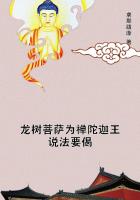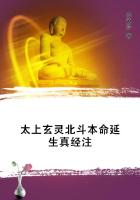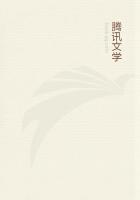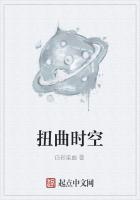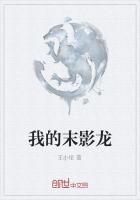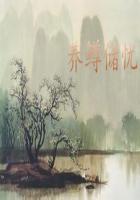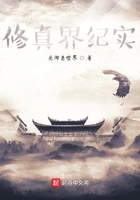At the same time I am decidedly of opinion that many large tracts of land between Rose Hill and the Hawkesbury,even now,are of a nature sufficiently favourable to produce moderate crops of whatever may be sown in them.And provided a sufficient number of cattle be imported to afford manure for dressing the ground,no doubt can exist that subsistence for a limited number of inhabitants may be drawn from it.To imperfect husbandry,and dry seasons,must indubitably be attributed part of the deficiency of former years.Hitherto all our endeavours to derive advantage from mixing the different soils have proved fruitless,though possibly only from want of skill on our side.
[In my former narrative I have particularly noticed the sudden disappearance of the cattle,which we had brought with us into the country.Not a trace of them has ever since been observed.Their fate is a riddle,so difficult of solution that I shall not attempt it.Surely had they strayed inland,in some of our numerous excursions,marks of them must have been found.
It is equally impossible to believe that either the convicts or natives killed and ate them,without some sign of detection ensuing.]
The spontaneous productions of the soil will be soon recounted.
Every part of the country is a forest:of the quality of the wood take the following instance.The 'Supply'wanted wood for a mast,and more than forty of the choicest young trees were cut down before as much wood as would make it could be procured,the trees being either rotten at the heart or riven by the gum which abounds in them.This gum runs not always in a longitudinal direction in the body of the tree,but is found in it in circles,like a scroll.There is however,a species of light wood which is found excellent for boat building,but it is scarce and hardly ever found of large size.
To find limestone many of our researches were directed.But after repeated assays with fire and chemical preparations on all the different sorts of stone to be picked up,it is still a desideratum.Nor did my experiments with a magnet induce me to think that any of the stones I tried contained iron.
I have,however,heard other people report very differently on this head.
The list of esculent vegetables,and wild fruits is too contemptible to deserve notice,if the 'sweet tea'whose virtues have been already recorded,and the common orchis root be excepted.That species of palm tree which produces the mountain cabbage is also found in most of the freshwater swamps,within six or seven miles of the coast.But is rarely seen farther inland.Even the banks of the Hawkesbury are unprovided with it.
The inner part of the trunk of this tree was greedily eaten by our hogs,and formed their principal support.The grass,as has been remarked in former publications,does not overspread the land in a continued sward,but arises in small detached tufts,growing every way about three inches apart,the intermediate space being bare;though the heads of the grass are often so luxuriant as to hide all deficiency on the surface.The rare and beautiful flowering shrubs,which abound in every part,deserve the highest admiration and panegyric.
Of the vegetable productions transplanted from other climes,maize flourishes beyond any other grain.And as it affords a strong and nutritive article of food,its propagation will,I think,altogether supersede that of wheat and barley.
Horticulture has been attended in some places with tolerable success.
At Rose Hill I have seen gardens which,without the assistance of manure,have continued for a short time to produce well grown vegetables.
But at Sydney,without constantly dressing the ground,it was in vain to expect them;and with it a supply of common vegetables might be procured by diligence in all seasons.Vines of every sort seem to flourish.
Melons,cucumbers and pumpkins run with unbounded luxuriancy,and I am convinced that the grapes of New South Wales will,in a few years,equal those of any other country.'That their juice will probably hereafter furnish an indispensable article of luxury at European tables',has already been predicted in the vehemence of speculation.Other fruits are yet in their infancy;but oranges,lemons and figs,(of which last indeed I have eaten very good ones)will,I dare believe,in a few years become plentiful.Apples and the fruits of colder climes also promise to gratify expectation.The banana-tree has been introduced from Norfolk Island,where it grows spontaneously.
Nor will this surprise,if the genial influence of the climate be considered.
Placed in a latitude where the beams of the sun in the dreariest season are sufficiently powerful for many hours of the day to dispense warmth and nutrition,the progress of vegetation never is at a stand.
The different temperatures of Rose Hill and Sydney in winter,though only twelve miles apart,afford,however,curious matter of speculation.
Of a well attested instance of ice being seen at the latter place,I never heard.At the former place its production is common,and once a few flakes of snow fell.The difference can be accounted for only by supposing that the woods stop the warm vapours of the sea from reaching Rose Hill,which is at the distance of sixteen miles inland;
whereas Sydney is but four.Again,the heats of summer are more violent at the former place than at the latter,and the variations incomparably quicker.The thermometer has been known to alter at Rose Hill,in the course of nine hours,more than 50degrees;standing a little before sunrise at 50degrees,and between one and two at more than 100degrees.
To convey an idea of the climate in summer,I shall transcribe from my meteorological journal,accounts of two particular days which were the hottest we ever suffered under at Sydney.

